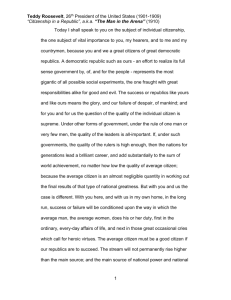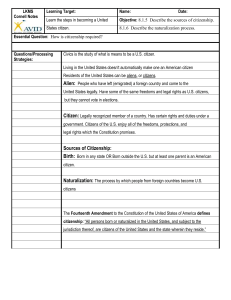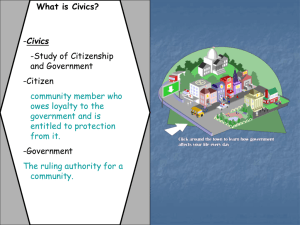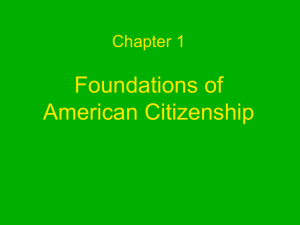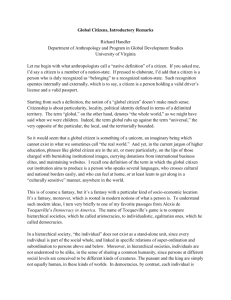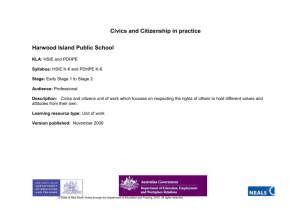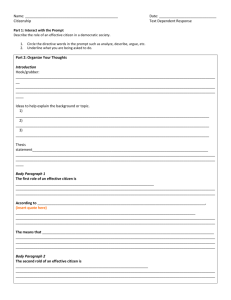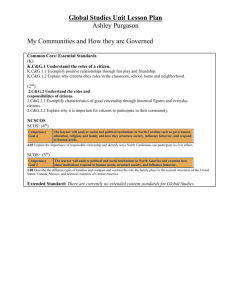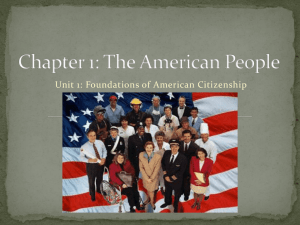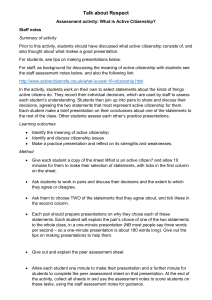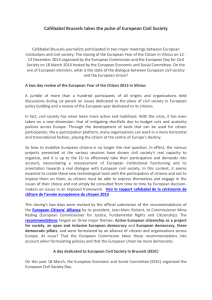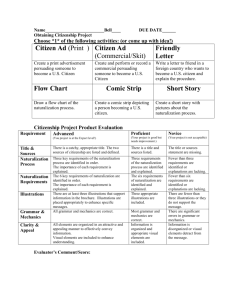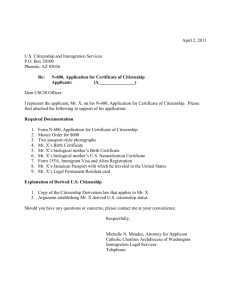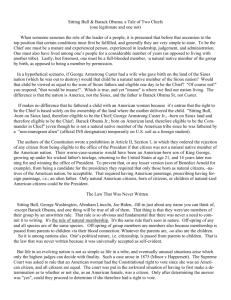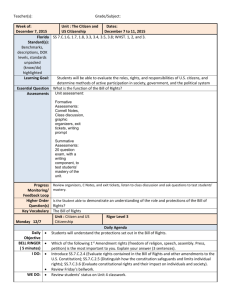File
advertisement
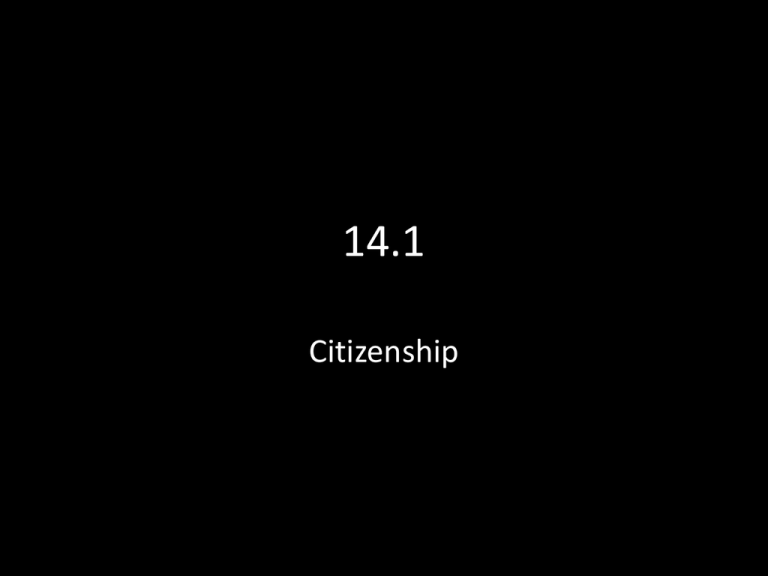
14.1 Citizenship History • Dred Scott v. Sanford – Supreme court case that ruled that no African American could be a citizen of the United States. – Before the Civil War • fourteenth amendment – extended citizenship to all people born in the U.S. regardless of race – Reversed the Dred Scott decision Two Ways to be a Natural Born Citizen • jus soli – extending citizenship through "the law of the soil.” – If you are born in the U.S. you are a citizen. – (whether your parents are citizens or not) • jus sanguinis – extending citizenship through "the law of blood.” – If your parents are citizens when you are born, then you are a citizen Aliens • Alien – anyone living in a country where they are not a citizen • resident alien – a non-citizen living in a country with permission and for an unlimited amount of time • non-resident alien – a non-citizen living in a country with permission but for a limited amount of time Aliens • undocumented alien – a non-citizen who enters the U.S without legal permission • enemy alien – a non-citizen whose country of citizenship is at war with the U.S. • refugee – non-citizens who are generally granted amnesty when fleeing troubling situations in their country Changing from Alien to Citizen • naturalization – the process of immigrants becoming a U.S. citizen Naturalization requirements • • • • • • • • • • • You already have a green card You are at least 18 years old. You have lived in the U.S. lawfully as a permanent resident for at least five years unless you are a spouse of a U.S. citizen, refugee, or received your green card through political asylum. During those five years, you have been physically present in the U.S. for at least half of the time. You have not spent more than one year at a time outside the U.S. You have not established a primary home in another country. You have lived in the state or district where you are filing your application for at least three months. You have "good moral character". You can read, write and speak English. You can pass a test about U.S. history and government. You will swear that you believe in the principles of the U.S. Constitution and will be loyal to the U.S. • Expatriation – "quitting" as a U.S. citizen. – The process of denouncing citizenship for another country – Expatriate – someone who “quit” U.S. Immigration History • Chinese exclusion act – first act of congress that limited immigration. – It banned any Chinese from entering the country for 10 years. • quota system – setting limits on how many imigrants can come from certain countries


